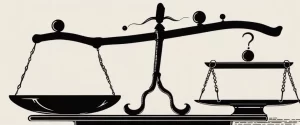——Love Yourself Like Your Life Depends on It by Kamal Ravikant & Healing Add by Daniel G Amen

In a world filled with self-help literature that promises to guide individuals towards happiness, personal growth, and well-being, it becomes essential to identify the books truly capable of fostering meaningful transformation. Love Yourself Like Your Life Depends on It by Kamal Ravikant and Healing ADD by Daniel G Amen are two such books that offer unique perspectives on self-improvement—each addressing crucial aspects of human existence from distinct angles. While Ravikant’s book advocates for self-compassion and self-love as keys to unlocking one’s full potential, Amen’s explores the realm of attention deficit disorder (ADD) and delves into strategies for managing and healing this often misunderstood condition.
Both texts resonate with readers seeking guidance to overcome personal hurdles and challenges, albeit approaching them from vastly divergent viewpoints. On one hand, Ravikant invites readers on a deeply personal journey, sharing his own raw experiences and profound insights, while on the other hand, Amen, a renowned psychiatrist, dives into the scientific realm, drawing upon years of research and clinical expertise. Within this comparative study, we will explore the underlying themes, methodologies, and potential impact of these two books, aiming to unearth both their individual strengths and shared principles that can assist readers in their pursuit of self-fulfillment and inner healing. By examining the fundamental ideas and contrasting approaches found in Love Yourself Like Your Life Depends on It and Healing ADD, we seek to uncover how these two seemingly distinct works converge to offer a comprehensive understanding of the human psyche and the potential for personal transformation.
Brief Summary of Two Books
Love Yourself Like Your Life Depends on It by Kamal Ravikant
“Love Yourself Like Your Life Depends on It” by Kamal Ravikant is a self-help book that explores the power of self-love and its impact on our overall well-being. Ravikant shares his personal journey of hitting rock bottom emotionally and mentally, which led him to develop a life-changing practice of self-love.
The book begins with Ravikant recounting a difficult period in his life when he reached a breaking point, feeling lost, depressed, and contemplating suicide. In search of a way out, he stumbled upon a simple yet profound idea: love himself unconditionally. Inspired by this realization, he decided to make a commitment to love himself as if his life depended on it – because, in fact, it did.
Ravikant reveals his daily practice of repeating the mantra “I love myself” and how it gradually transformed his mindset and perspective on life. He emphasizes the importance of consistency and authenticity in this practice, urging readers to truly feel and embody the sentiment behind the words.
Throughout the book, Ravikant explores the profound impact self-love has on one’s overall well-being, relationships, and success. He highlights the significance of self-compassion, forgiveness, and acceptance in cultivating a nourishing self-love practice.
“Love Yourself Like Your Life Depends on It” serves as a guide for readers seeking to improve their relationship with themselves and find inner peace and happiness. Ravikant shares personal anecdotes, scientific research, and practical exercises to help readers understand and implement self-love in their own lives.
In essence, the book encourages readers to prioritize self-love as a crucial foundation for personal growth, happiness, and fulfillment. It reminds us that loving ourselves is not only a choice but a necessity if we want to lead a fulfilling and meaningful life.
Healing Add by Daniel G Amen
“Healing ADD” by Daniel G. Amen is a comprehensive guide that provides insight, information, and strategies to effectively manage and overcome Attention Deficit Disorder (ADD) in both children and adults. Dr. Amen, a renowned psychiatrist, explores the various types and subtypes of ADD, offering readers a deeper understanding of the condition’s impact on the brain and overall functioning.
The book outlines different treatment options available, emphasizing a holistic approach that combines medication, behavioral modifications, and lifestyle changes. Dr. Amen highlights the importance of accurately diagnosing ADD through brain imaging techniques such as SPECT (single photon emission computed tomography) scans. By identifying specific patterns of brain activity, individuals can receive personalized treatment plans tailored to their brain type.
Furthermore, “Healing ADD” delves into the impact of diet, exercise, sleep, and stress management on one’s ability to manage symptoms effectively. Dr. Amen provides practical suggestions to optimize brain health, such as incorporating a nutritious diet and engaging in regular physical activity as integral components of treatment.
The book also addresses the challenges faced by individuals with ADD in various settings, including school, work, and relationships. Dr. Amen provides useful tips and strategies for improving executive functioning skills, time management, organization, and communication.
Throughout “Healing ADD,” Dr. Amen shares insightful case studies highlighting personal experiences of individuals who have successfully managed their ADD and transformed their lives. Additionally, he offers guidance to parents of children with ADD, helping them better understand and support their child’s unique needs.
In summary, “Healing ADD” by Daniel G. Amen is an informative and empowering resource that tackles the complexities of ADD and offers practical steps for managing and healing the condition. It provides hope, strategies, and a comprehensive understanding of ADD, enabling individuals to overcome challenges and unlock their full potential.
Comparison between Two Books

Similarities in Psychology
Although “Love Yourself Like Your Life Depends on It” by Kamal Ravikant and “Healing ADD” by Daniel G. Amen have different primary focuses, they both touch on various psychological aspects that foster personal growth and well-being. Here are some similarities between the two books in terms of psychology:
1. Self-acceptance and self-compassion: Both books emphasize the importance of accepting and loving oneself. Ravikant encourages readers to develop a strong sense of self-love, while Amen recommends nurturing self-compassion as a foundational step in healing attention deficit disorder (ADD).
2. Mindset and cognitive approaches: Psychology plays a role in both books through their emphasis on mindset. Ravikant explores the power of positive affirmations and cognitive reframing to overcome self-doubt and negative self-talk. Similarly, Amen suggests utilizing cognitive strategies to address the thought patterns and behaviors associated with ADD.
3. Neuroplasticity and brain rewiring: Both books acknowledge the concept of neuroplasticity, which suggests that the brain can change and adapt throughout one’s life. Ravikant highlights the ability to rewire one’s brain through positive thoughts and self-love, while Amen discusses how specific brain exercises and interventions can positively impact individuals with ADD.
4. Emotional well-being: Psychology is intricately interconnected with emotional well-being in both books. Ravikant encourages readers to pay attention to their emotions, cultivate gratitude, and develop a positive emotional state as essential components of self-love. Amen delves into the emotional aspects of ADD and explores how emotional regulation techniques can aid in the healing process.
5. Therapeutic techniques: Although not as extensively discussed in Ravikant’s book, both authors touch on therapeutic techniques for achieving personal growth. Amen introduces various methods such as medication, cognitive-behavioral therapy, and lifestyle modifications to manage and heal ADD. Ravikant hints at the therapeutic effects of visualization and self-talk techniques for building self-love and transformation.
In summary, both “Love Yourself Like Your Life Depends on It” and “Healing ADD” delve into psychological aspects such as self-acceptance, mindset, neuroplasticity, emotional well-being, and therapeutic techniques. Despite their different primary focuses, these books ultimately aim to help individuals enhance their psychological state and improve their overall quality of life.
Divergences in Psychology
Love Yourself Like Your Life Depends on It by Kamal Ravikant and Healing ADD by Daniel G. Amen are two books that focus on personal growth and well-being, but they diverge significantly in terms of their approach towards psychology.
Love Yourself Like Your Life Depends on It is a self-help book that delves into the importance of self-love and positive affirmation. Kamal Ravikant shares his personal journey of overcoming depression and transforming his life by cultivating self-compassion and self-care. The book primarily emphasizes the power of repatterning one’s mindset and thoughts to create a positive and fulfilling life. It offers simple yet effective techniques such as affirmations and gratitude exercises to rewire one’s thinking patterns.
On the other hand, Healing ADD by Daniel G. Amen centers around Attention Deficit Disorder (ADD) and provides a multifaceted approach to understanding and managing it. Amen is a psychiatrist who extensively studies brain imaging and neuroscience. The book explores the physiological aspects of ADD, examining brain structures and biochemical imbalances associated with the disorder. It delves into medication options, nutritional strategies, cognitive exercises, and lifestyle modifications to address ADD symptoms.
The key divergence in the psychology aspect of these books lies in their approach. Love Yourself Like Your Life Depends on It focuses more on the power of mindset, emotions, and self-love in fostering personal growth and happiness. It encourages individuals to change their thought patterns and beliefs to transform their lives. The psychological emphasis is on developing self-awareness, positive thinking, and emotional well-being.
Conversely, Healing ADD takes a more scientific and clinical approach to psychology by exploring the brain’s role in attention and executive functioning. It investigates brain imaging techniques and discusses neuroscience research to understand the biological underpinnings of ADD. The book aims to provide a comprehensive understanding of ADD and offers a range of solutions, including medications and various therapeutic interventions.
In summary, Love Yourself Like Your Life Depends on It emphasizes the psychological aspects of personal growth, focusing on mindset and self-love techniques. In contrast, Healing ADD leans more towards the neuroscientific and clinical aspects of psychology, offering insights into the physiological aspects of ADD and its management.

Conclusion
Both “Love Yourself Like Your Life Depends on It” by Kamal Ravikant and “Healing Add” by Daniel G Amen are books that offer guidance and insight into personal well-being.
“Love Yourself Like Your Life Depends on It” focuses on self-love and the importance of embracing self-compassion. It explores the author’s personal journey towards self-acceptance and provides practical advice on cultivating love for oneself. This book can be valuable for individuals seeking to improve their self-esteem and overall well-being.
On the other hand, “Healing Add” by Daniel G Amen is specifically geared towards understanding and managing Attention Deficit Disorder (ADD) and Attention Deficit Hyperactivity Disorder (ADHD). The book offers insights into brain health, identifies factors that may contribute to ADD, and provides guidance on treatment and lifestyle changes that can help manage the condition.
The decision of which book is more worthy of reading depends on your personal interests and needs. If you are looking to enhance your self-love and overall well-being, “Love Yourself Like Your Life Depends on It” may be a more appropriate choice. However, if you or someone you know is dealing with ADD or ADHD and desires more knowledge about the condition and ways to manage it, then “Healing Add” would be a more relevant option.


